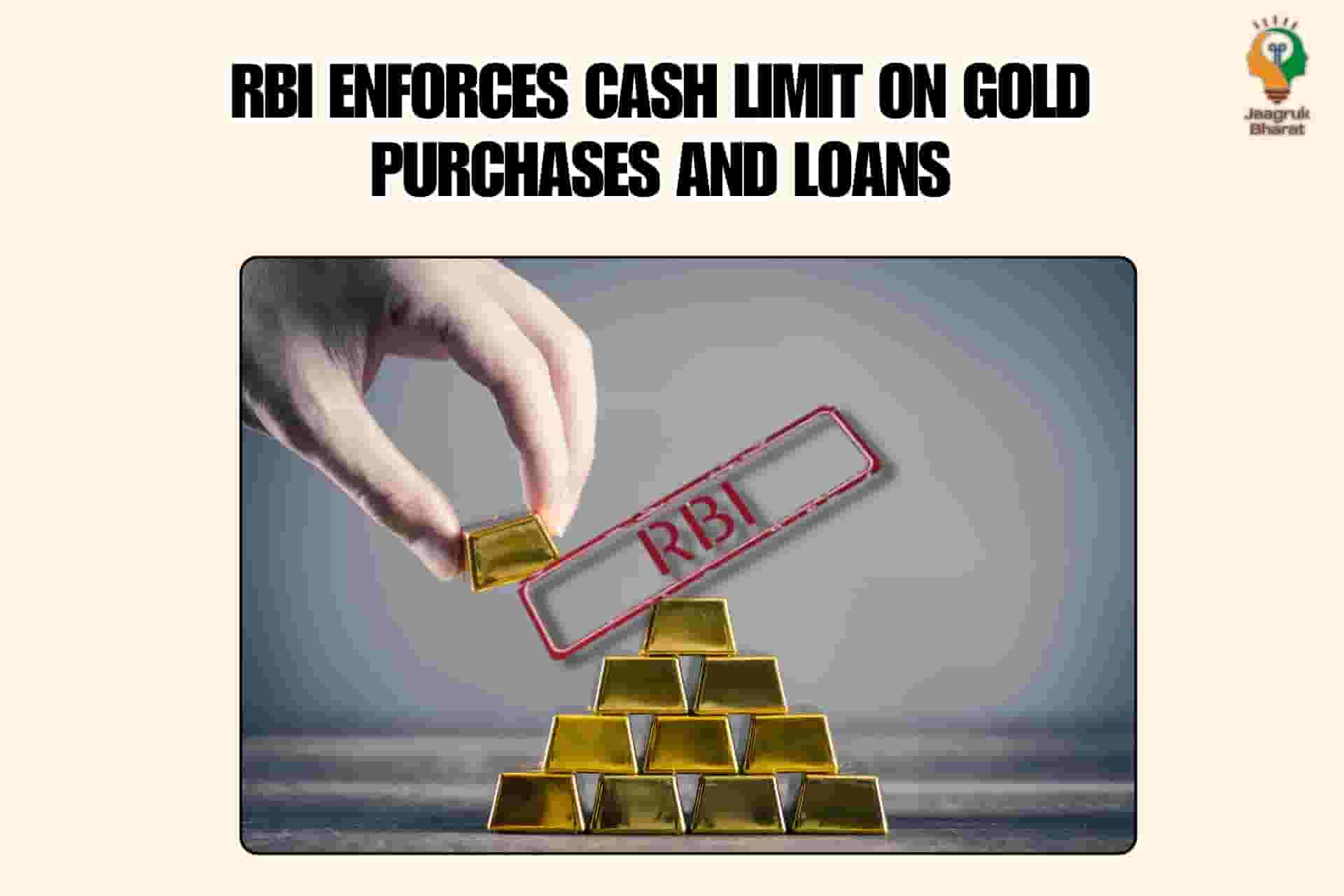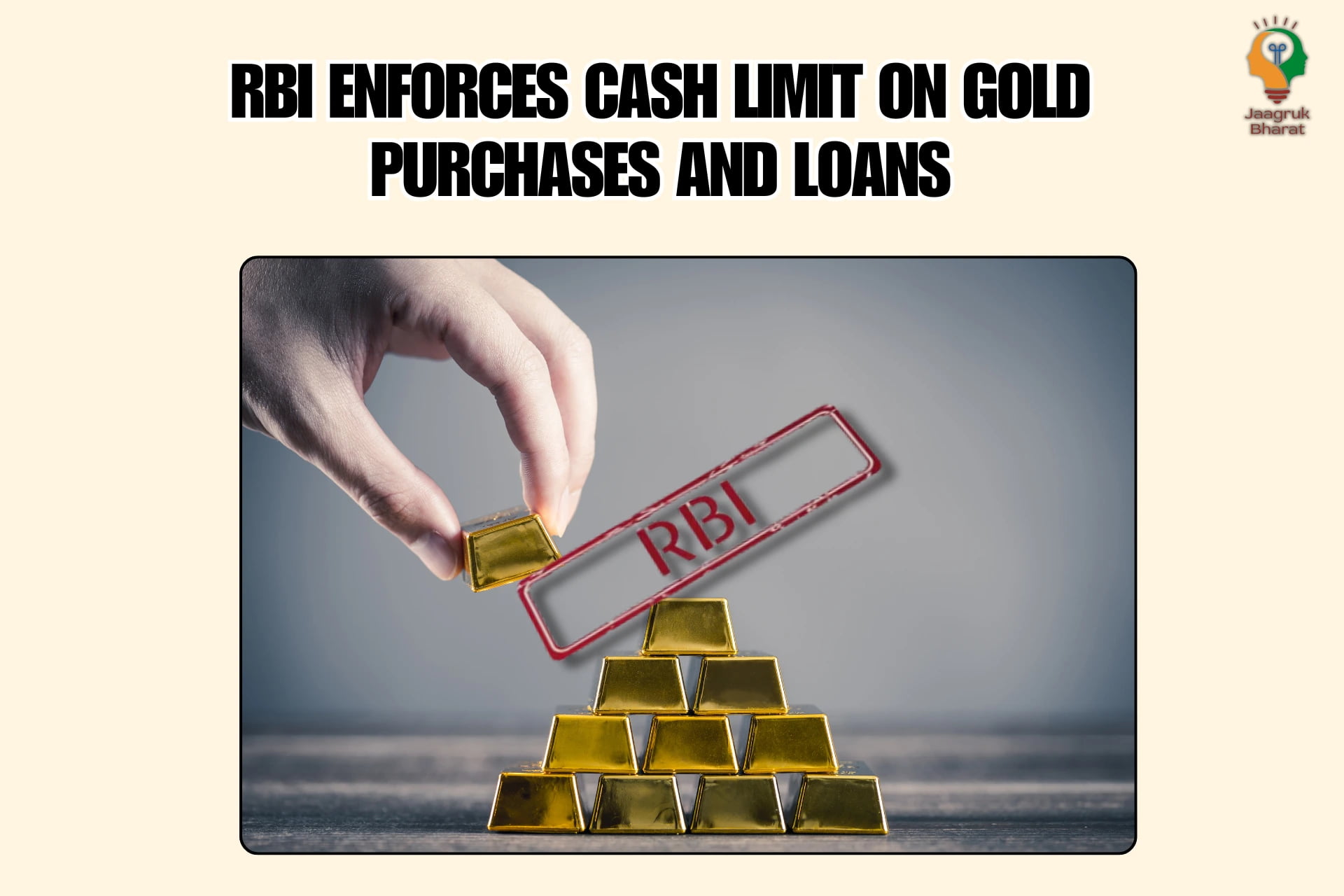Section 269SS | RBI Enforces Rs 20,000 Cash Limit On Gold Purchases And Loans
Updated: 30-10-2025 at 5:30 AM
4k


The Reserve Bank of India has instructed all non-banking financial companies (NBFCs) to operate as per the income tax rules. From now on, customers can only give Rs 20,000 in cash in exchange for gold purchases. Customers will not be allowed to give more than Rs 20,000 in exchange for gold.
Read more: Ayushman Card
Compliance With Section 269SS Of The Income Tax Act
The RBI has also instructed NBFCs to follow Section 269SS of the Income Tax Act. According to Section 269SS, the cash limit is Rs 20,000 in cash for loans and deposits. Instead, they will have to make that transaction by other means, such as a check, bank draft, bank transfers, etc.
This eliminates tax evasion and promotes transparency in financial transactions. Section 259SS also helps to track financial transactions and control black money circulation. Breaking this rule will result in penalties being charged to the payer and the payee.
Read more: eShram Card
Impact Of New Cash Limit On All Taxpayers
If you want to take a loan for Rs 50,000, according to the new instructions, you will only get Rs 20,000 in cash. Since the gold loan amount is larger than the allowed amount that can be given in cash, the rest of the amount, Rs 30,000, will be given to you by other means.
This applies to all taxpayers, including individuals, partnerships, and companies. Transactions within India as well as internationally will be considered. Only transactions with the government, banking companies, post office savings banks, cooperative banks, and other notified institutions are exempted from this section.
Read more: Aadhaar Card
Industry Experts On RBI’s New Cash Limit
VP Nandakumar, the head of Manappuram Finance, said that the RBI has informed all financial institutions that there is a cash limit of Rs 20,000 that can be given out to people in the form of cash. Financial institutions will only be able to give out Rs 20,000 in the form of cash. The rest of the amount will have to be given out by other means. If a person wishes to take a gold loan, then only Rs 20,000 will be received in cash.
Umesh Mohanan, the CEO of Indel Money, said that this implementation will ensure smooth and easier bank transactions. This was also implemented to ensure more efficiency in handling money transfers, making sure they follow all the set rules and regulations.
If a person takes a loan of Rs 15,000 in cash and, before repaying it, takes another loan of Rs 10,000 also in cash, it will not be allowed. As they didn’t repay the initial loan, that means their total amount will accumulate to Rs 25,000.
Read more: Death Certificate
Impact On Businesses & Customers
The primary aim of introducing the new section was to reduce the rate of back money and unaccounted transactions. The new section impacts the business entities and customers in the following ways:
-
Businesses are now required to document all their transactions of more than Rs. 20,000.
-
The new Section 269SS restricts cash-based transactions and promotes digital and cashless transactions which affects payments made by small businesses.
-
Accountability and transparency by businesses and customers would be enhanced through this new section.
-
People from rural areas would face problems in maintaining digital transactions which would affect them greatly.
Impact On NBFCs
The introduction of Section 269SS would impact NBFCs greatly in the following ways:
-
NBFCs now wouldn’t be able to use cash transactions of more than Rs.20000 to rural areas.
-
They are required to document all transactions carefully now.
-
Section 269SS reduces NBFC's exposure to risks associated with credits that turn into liability for them later.
Penalties For Violating Cash Transaction Rule
If a person does not follow Section 159SS and makes a transaction of Rs 50,000 in cash, a penalty will be levied that will be greater than the transaction amount. One must ensure that they are following this rule to avoid receiving any penalties.
Read more: EWS Certificate
Challenges Concerning Section 269SS Of The Income Tax Act
There are several challenges associated with the introduction of the new Section 269SS. Some of the major challenges would be:
-
Rural areas: The people residing in rural areas are still dependent on traditional transactions based on cash rather than cashless transactions.
-
Transition: It would be a huge challenge to transition the whole country, including people from rural and remote areas from cash to cashless transactions.
-
Infrastructure development: Infrastructure development is essential to complete the transition without which the transition would be impossible.
Way Forward
Rules that promote honesty and transparency in finance are needed, but we also need to help more people, especially in rural areas, join the financial system. Moving to online banking and following strict rules might be hard for people who aren’t used to it.
We need innovative ideas to solve this, like teaching people how to use digital tools and bringing banking to remote places. To promote fair growth and support underrepresented people, government agencies, banks, and tech firms need to work together.
Read about the RBI notification on cash limit for more information.
Stay updated with Jaagruk Bharat for the latest information on latest RBI guidelines and more. If you have any questions, reach out to us via our community page.
Frequently Asked Questions
3
0
4k
3
0
4k Views
1
No comments available





Our Company
Home
About
T&C
Privacy Policy
Eula
Disclaimer Policy
Code of Ethics
Contact Us
Careers
Cancellation & Refund Policy
Categories
Women
Insurance
Finance
Tax
Travel
Transport & Infrastructure
Food
Entertainment
Communication
Government ID Cards
E-commerce
Traffic guidelines
Miscellaneous
Housing and Sanitation
Sports
Startup
Environment and Safety
Education
Agriculture
Social cause
Employment
Disclaimer: Jaagruk Bharat is a private organization offering support for documentation and government scheme access. We are not affiliated with any government body. Official services are available on respective government portals. Our goal is to make processes easier and more accessible for citizens.
All Copyrights are reserved by Jaagruk Bharat